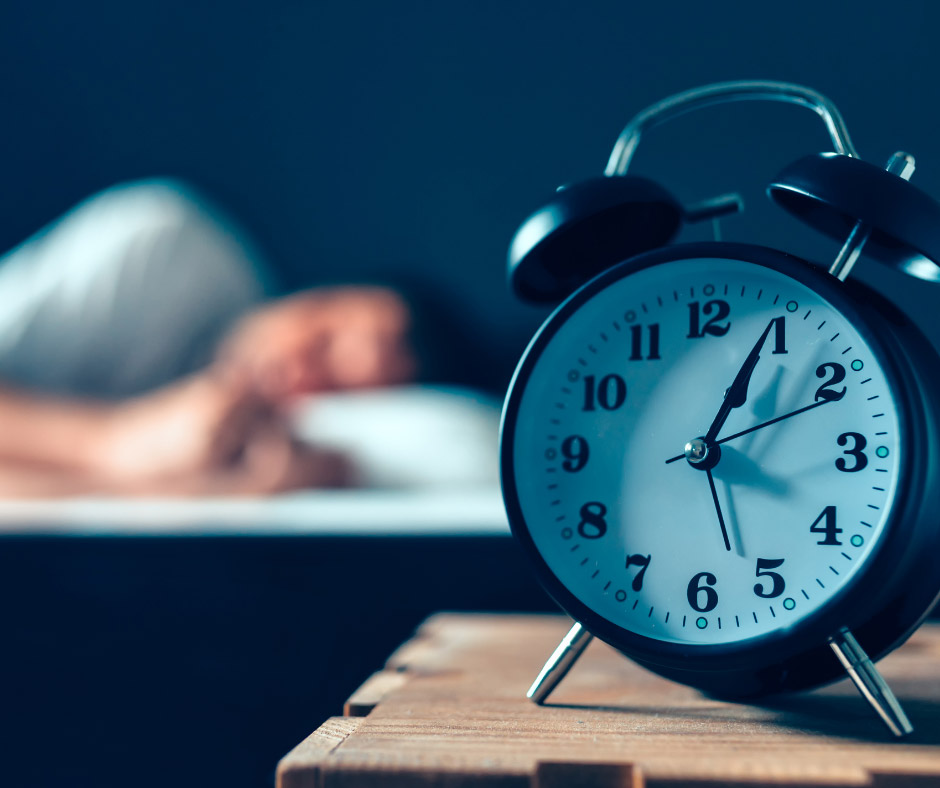Getting a good night’s sleep is incredibly important for your overall health. It’s a period of time when the body restores itself physically, and organisation occurs in our brain. Research has shown that a person’s ability to concentrate, use creative thinking, make sound decisions, and form memories can all be negatively impacted by poor sleep.
So What Can You Do to Improve the Quality of Your Sleep?
-
- Create a regular sleep schedule – If you follow a healthy pattern (adults should aim for 7-9 hours per night), your body will develop a balanced sleep-wake cycle
- Relax immediately before sleep – Avoid mentally stimulating activities, exercise and screens. This includes caffeine, which can stay in the body for up to 24 hours! If you have difficulty sleeping, limit your intake of caffeinated foods and drinks such as tea, coffee, cola and chocolate
- Don’t go to bed on a full or empty stomach – Eat a few hours before bed and allow your food to digest.
- Keep distracting things out of the bedroom such as lights and noise –if you can’t control these things you could try sleeping with earplugs or an eye mask
- Try to get some regular exercise during the day – Exert your energy and get the body moving, but not too close to bedtime, as your body needs time to wind down
- Invest in a comfortable mattress – A poor mattress can cause discomfort and a restless night sleep; it also predisposes you to other health issues such as back pain
- Keep the room at a comfortable temperature – According to sleep hub, a temperature between 16 and 24 degrees Celsius is optimum
- Keep the room clean and tidy, this will help to create a space you feel calm and relaxed in
- Go to bed clean – ie shower, brush your teeth, put on clean sleep clothes
- Avoid drugs – Cigarettes are a stimulant which causes your heart rate to increase, alcohol acts as a depressant, leaving you feeling unrefreshed in the morning and sleeping pills should be discussed with a health professional before use, as they could cause more harm than good in some cases.
As an osteopath, I understand that many of you may find sleep uncomfortable due to pain or injury, and this can be frustrating and exhausting in the long run.
If this is the case for you or someone you know then I would highly recommend chatting to us here at HealthLinks Gippsland.
Quite often we can assist you in decreasing pain and discomfort, either with hands on treatment or advice on how to improve your sleeping posture so you can get a good night’s sleep.
References
Better Health Channel. (2020). Sleep hygiene. https://www.betterhealth.vic.gov.au/health/conditionsandtreatments/sleep-hygiene
Cunnington, D. (2016). Sleeping in the Heat. SleepHub. https://sleephub.com.au/sleeping-in-the-heat/
Healthdirect. (2020). Sleep. https://www.healthdirect.gov.au/sleep
Sleep Health Foundation. (2019). Memory, Thinking and Sleep. https://www.sleephealthfoundation.org.au/memory-thinking-and-sleep.html
Sleep Health Foundation. (2020). General Sleep Info. https://www.sleephealthfoundation.org.au/component/tags/tag/general-sleep-info.html

